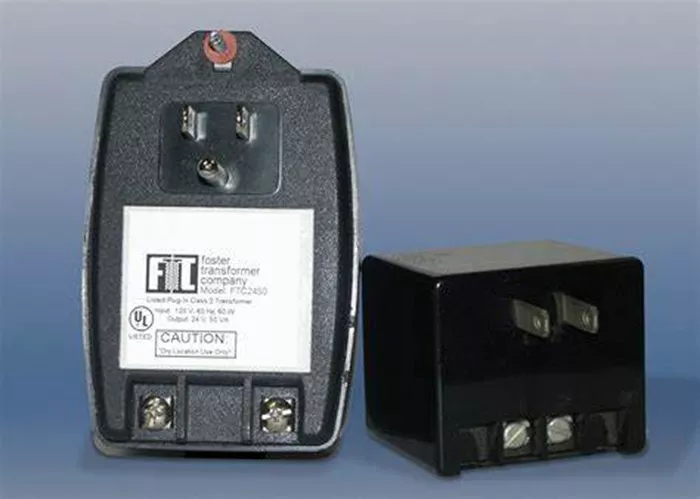A plug-in Class 2 transformer is a specialized power supply device designed for safety and low-energy applications. Unlike standard transformers, it complies with the National Electrical Code (NEC) Class 2 requirements, meaning it delivers limited voltage and current to reduce fire and shock hazards. These transformers are commonly used in residential, commercial, and industrial settings where low-voltage power is needed for sensitive electronics, lighting, and control systems.
Class 2 transformers are often compact and lightweight, making them easy to install and integrate into various electrical systems. They typically plug directly into a standard wall outlet, eliminating the need for complex wiring. Due to their safety features, they are widely used in applications where user protection is a priority.
Key Features of Plug-In Class 2 Transformers
Safety Compliance
One of the most important aspects of a Class 2 transformer is its adherence to safety standards. These transformers are designed to limit output voltage to 30V AC or 60V DC and current to 100VA (volt-amperes). This ensures that even in the event of a short circuit or overload, the risk of fire or electrical shock is minimized.
Energy Efficiency
Modern plug-in Class 2 transformers are built with high-efficiency cores, often using toroidal or laminated designs to reduce energy loss. This makes them ideal for continuous operation in devices such as LED lighting, security systems, and low-power electronics.
Compact and Lightweight Design
Since these transformers are meant for plug-and-play applications, they are engineered to be small and portable. Many models feature built-in thermal protection and overcurrent safeguards, further enhancing their reliability.
Common Applications of Plug-In Class 2 Transformers
Low-Voltage Lighting Systems
Class 2 transformers are frequently used in LED lighting and halogen systems. They provide the necessary power while ensuring safety, especially in residential and commercial environments where wiring may run close to flammable materials.
Security and Alarm Systems
Many security cameras, doorbells, and alarm panels operate on low-voltage power. A plug-in Class 2 transformer ensures these devices receive stable and safe electricity without the risk of overheating or electrical faults.
Consumer Electronics and Gadgets
Devices such as routers, modems, and small appliances often rely on Class 2 transformers for power conversion. Their ability to deliver consistent voltage makes them ideal for sensitive electronics that require stable input power.
HVAC and Thermostat Controls
Heating, ventilation, and air conditioning systems often use Class 2 transformers to power thermostats and control circuits. The limited voltage ensures safe operation while maintaining system efficiency.
Advantages of Using a Plug-In Class 2 Transformer
Enhanced Safety
Because these transformers limit voltage and current, they significantly reduce the risk of electrical fires and shocks. This makes them suitable for use in homes, schools, and offices where safety is a top priority.
Easy Installation
Unlike hardwired transformers, plug-in models do not require professional installation. Users can simply connect them to an outlet, making them a convenient solution for quick deployments.
Cost-Effective Power Solution
Class 2 transformers are generally more affordable than high-power alternatives. Their energy-efficient design also helps reduce electricity costs over time.
How to Choose the Right Plug-In Class 2 Transformer
Determine Power Requirements
Before selecting a transformer, it is essential to check the voltage and current needs of the connected device. Choosing an underpowered transformer can lead to poor performance, while an overpowered one may not comply with Class 2 safety standards.
Check for Certifications
Look for transformers that are UL-listed or certified by other recognized safety organizations. This ensures the product meets industry standards for performance and safety.
Consider Environmental Conditions
If the transformer will be used outdoors or in humid environments, selecting a model with weatherproof or corrosion-resistant features is crucial.
Conclusion
Plug-in Class 2 transformers are essential components in modern electrical systems, providing safe and efficient power for a variety of low-voltage applications. Their compliance with safety standards, ease of use, and versatility make them a preferred choice for both residential and commercial uses. By understanding their features and applications, users can select the right transformer to meet their specific needs while ensuring reliable and hazard-free operation.
This article has covered the fundamental aspects of plug-in Class 2 transformers, from their design principles to real-world applications. Whether for lighting, security, or electronics, these transformers play a vital role in delivering safe and stable power in everyday electrical systems.
Related Topics:

